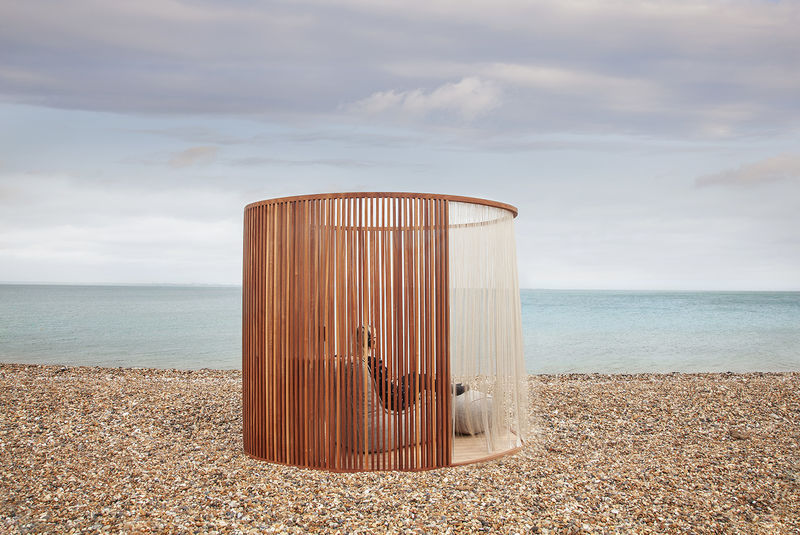As we enter day 17 of dry January, our New Year’s resolutions are starting to wobble and still 13 days until payday, it’s no wonder that by day 21, we are all but ready to give up. Monday 21st January is officially named Blue Monday and has been recognised as one of the most depressing days of the year.
However, there are ways to combat this and co-founders of Inhere (London’s most innovative meditation concept), Adiba Osmani and Ghazal Abrishamchi, have identified a number of foods to alleviate depression and stress as well as a simple, yet effective meditation session to see you through the January Blues.
- Are there any simple meditation techniques people (even beginners) can use to relieve stress in 2019?
- As we enter a new year with so many aspirations and resolutions to make this year bigger and better than the previous, even the slightest down fall can cause emotions to run high and our thoughts might just get ahead of us. Practice taking a few minutes each day to gather the attention on the breath, breathing deeply from the belly…and then a few minutes to just observe whatever thoughts or emotions there are, being completely accepting of them. Doing this every day even for a few minutes keeps us grounded, in the moment, helps to rein in the incessant pull of thoughts and emotions that may seem too much to handle sometimes.
- Are there any particular foods we can eat to ensure we remain calm and in good mental health?
- Stress is a complex mental health issue, and multiple factors are involved in its development and maintenance, recent evidence suggests that habitual diet plays an important and independent role in the development of this condition. The relationship between mood and our diet is bidirectional: when we eat good food, we feel good, and when we feel good, we are more likely to want to take care of our bodies by feeding it nutritious food. The opposite is also true… when we eat “junk food” we feel sluggish and down, and when feel down, we are less likely to snack on vegetables!
- There are many studies showing there’s a strong link between a balanced diet and relaxation. For example:
- Stress is a complex mental health issue, and multiple factors are involved in its development and maintenance, recent evidence suggests that habitual diet plays an important and independent role in the development of this condition. The relationship between mood and our diet is bidirectional: when we eat good food, we feel good, and when we feel good, we are more likely to want to take care of our bodies by feeding it nutritious food. The opposite is also true… when we eat “junk food” we feel sluggish and down, and when feel down, we are less likely to snack on vegetables!
- Deficiency in certain nutrients such as vitamin D, folate, vitamins B6 and B12, calcium, magnesium and omega-3 fatty acids, are associated with increased risk of depression and feeling stressed.
- Supplements with calcium, magnesium, and B vitamins have been shown to reduce perceived stress, and has positive effects on mood
- Omega-3 a fatty acids, tryptophan, and some carbohydrates have been shown to improve mod, reduce stress and cortisol – which is a biomarker of stress
- Here is a list of foods that make up a balanced diet that can promote good mental health:
- oily fish-good source of omega-3 fatty acids
- lean meat- good source of B 12 and B6
- dairy-good source of calcium, B12 – cheese in particular
- eggs-good source of tryptophan, B12
- nuts and seeds and legumes- good source of tryptophan, B6, magnesium
- green leafy vegetables-good source of magnesium and folate
- wholegrains- good source of complex carbohydrates, magnesium
- fermented foods such as yogurt, kimchi, kamboucha – promote the growth of healthy gut bacteria
- A simple meditation concept
- Research has shown that regularly practicing compassion meditation not only helps us relate more to others, it also boost our positive feelings of joy and connectedness. Take a couple of minutes to consider yourself and wish yourself well, perhaps saying “May I be well, May I be happy, May I make progress”. then take a couple of minutes to do the same for someone you care for. Then take someone you may know only in passing. And finally, extend this wish for the world…you can do this as part of a step by step guide to meditation:
- Start small: Setting aside even 5 minutes a day is a great starting point. Write it down in your calendar.
- Sit up: you can sit on the floor or on a chair in a comfortable position – keep your back straight so that you don’t fall asleep and the breath flows easily.
- Breathe: feel your breath as it moves in and out: just follow its rhythm and notice how it feels as it flows through the body.
- Observe: observe the thoughts that pass through your mind, the sensations that arise in your body, and the emotions that surface (impatience is a common one!). Become the “silent witness”, letting it all come and go, without getting caught up too long any one thought, feeling or sensation.
- Bring it back: Your mind will wander. This is normal, just notice your mind has wandered, and bring your awareness back to the present experience.
- Don’t interfere: Don’t try to stop or ignore any thought that rises in your mind, your task is only to become aware of them.
- Don’t judge: all of our thoughts, feelings and sensations are valid; when meditating, we watch, we don’t judge.
- Be patient: When you notice an impulse to get up and do something else, be patient, trust that things will unfold in their own time and just stay with your breath.
- Commit: Try it every day for a week to see how you feel after. As with any practice, it takes a few sessions for it all to make sense.
- If all fails, relax: If you find it’s not for you, try just breathing deeply in and out of the belly for a few minutes at a time, every day. This triggers the well-documented “relaxation response” in the body, so your stress levels drop as a matter of course.
- Research has shown that regularly practicing compassion meditation not only helps us relate more to others, it also boost our positive feelings of joy and connectedness. Take a couple of minutes to consider yourself and wish yourself well, perhaps saying “May I be well, May I be happy, May I make progress”. then take a couple of minutes to do the same for someone you care for. Then take someone you may know only in passing. And finally, extend this wish for the world…you can do this as part of a step by step guide to meditation:



